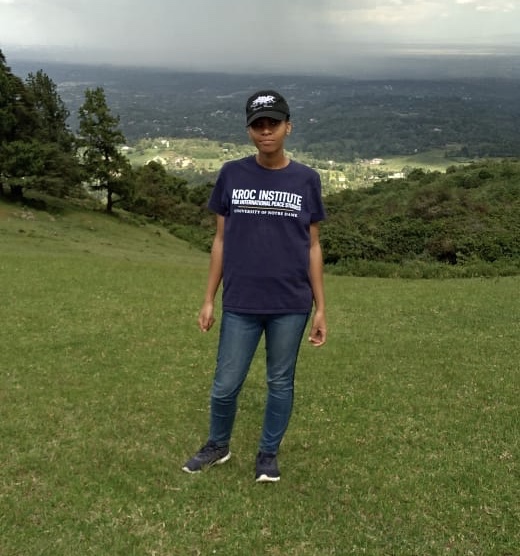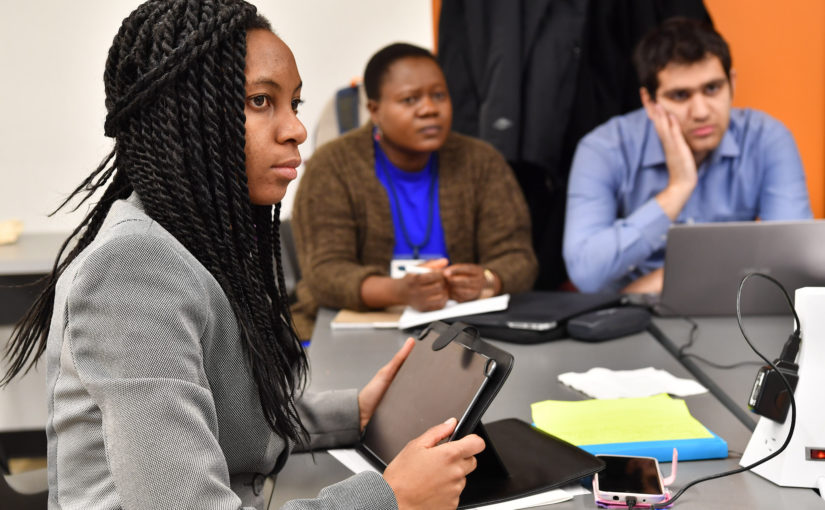by: Loyce Mrewa
Working in Nairobi, Kenya, has been a unique experience with challenges I had not initially anticipated, but it has exposed me to various nuances which will be helpful in the future. This experience enabled me to travel to Kenya for the first time and to work in a country other than my own. It has also provided the opportunity to learn and witness firsthand the implementation of the peacebuilding concepts and tools I have been learning in class. Since I am a foreigner with limited familiarity with Kenya, its culture, and the local language, Kiswahili, I have been observing this implementation process from an outsider perspective.
A bottom-up approach
Being in Nairobi, Kenya, for five months has enabled me to witness and learn about the importance of having long-term engagement. My perspectives about how to engage Kenyans in peacebuilding work have shifted over time, with greater exposure and interaction with locals. Working with a local partner has provided space for interrogation and inquiry about the dimensions and nuances that influence peacebuilding work. It has made me realize the importance of engaging in peacebuilding work with the aid of locals who are more familiar with cultural and social practices that are important to analyze. The significance of the local turn in peacebuilding is being put into practical perspective during this field experience, at least at the individual level where, as a foreigner, I am working and being guided by a local partner with vast local knowledge and experience in the peacebuilding field. A bottom-up approach is an essential skill in the field, because at one point or another you will find yourself in a foreign land or space where you will have to learn from others. In such situations, one has to learn to support and trust in the capability and knowledge of persons from that particular context, and abandon initial assumptions one might hold.
I believe this process of trusting and supporting existing local structures and persons is what is meant by accompaniment and a bottom-up approach, concepts that I am currently learning firsthand in Kenya.

The immersion process into Kenya, its culture, and the peacebuilding interventions implemented by our partner organization has also provided space to practice accompaniment by learning from others through observation and providing assistance with projects. This has exposed me to strategies for effectively engaging in foreign spaces and working with persons from varying identity groups to enhance adaptability, social bridging skills, and cultivate an acceptance of differences. These traits are vital for relationship building and working in foreign environments, particularly since soft forms of power such as relationship building (social harmony) are utilized in making societies more peaceful and just.

Although immersion has been challenging for various reasons including language barriers, I have acquired valuable skills and have come to understand the practical importance of a local dimension in implemented interventions. Additionally, I am realizing the importance of working in foreign environments where one has limited familiarity and discovering the strategies for navigating these spaces. I now understand what Susan St. Ville, the Director of the International Peace Studies Concentration, meant in her advice to be “comfortable with being uncomfortable” in the field: the lessons learned in the field make the awkwardness of initial engagement all worth it.

